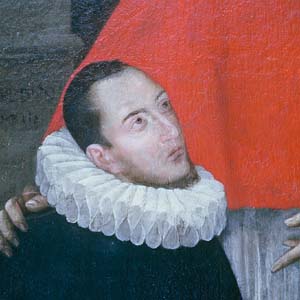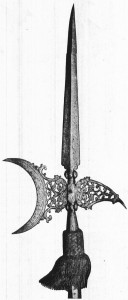Gesualdo – Strange Harmony of Love
Performers: 6 singers with forensic psychiatrist Dr Ruth McAllister
Madrigals and motets by Gesualdo and his contemporaries (D’India, Monteverdi, de Wert)
“Lord Don Carlo [Gesualdo] spoke to the witness, saying ‘I am going to massacre the Duke of Andria and that whore, Donna Maria’.†Witness documents, Naples, 1590
“Is this great music or merely weird?” John Milsom, Gramophone
How much does an artist’s personality inform his work?
Aged 20, Don Carlo Gesualdo, Prince of Venosa, planned and executed the murder of his wife and her lover in particularly brutal fashion, even by the standards of the time.
“Don Carlo went up to the bed of the Lady Donna Maria and dealt her still more wounds, saying, ‘I do not believe she is dead’.”
A contemporary of Monteverdi, Gesualdo was already a composer in secret. In the years after the murder, he became an extraordinary one, writing unsettled and unsettling works with violent contrasts and extreme harmonic colouring.
The reason commonly accepted for Gesualdo’s extreme style is one of personal guilt combined with his original and extreme musical personality. However, new research by forensic pyschiatrist Ruth McAllister comes to a subsantially different (and more logical) conclusion for his personality.
In addition, I Fagiolini’s musical choices show the context of his music and the clear and immediate inspiration for it at the court of Ferrara.
Alongside the singers, forensic psychiatrist Dr Ruth McAllister explains Gesualdo’s murders as a case study, analysing the offences through the eyewitness accounts to shed light on Gesualdo’s inner world.
“Underneath the body were many marks made by swords passing through the body and penetrating deeply into the floor…”
“Nothing except unprincipled modulation and the perpetual embarrassments and inexperience of an amateur.” Charles Burney, 1776
“A composer of extraordinary genius, whose works still live as the passionate expression of a strange personality.” Peter Warlock, 1926
- I was thinking that. Also @JolyonMaugham was (which carries a little more weight). https://t.co/pAu9emYdGd
- For my birthday I have done admin, walked dog, and rehearsed Walton with @The24choir https://t.co/jNTU2B3UIw https://t.co/LDhso8U9jS
- It's very reasonably priced and all those benefits.... https://t.co/DFJS8e9Dqw


